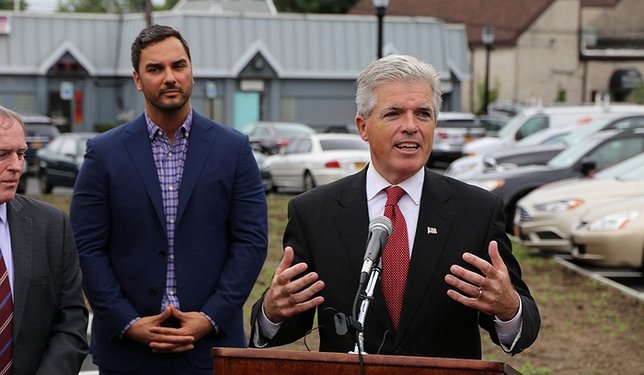Suffolk County, NY - October 1, 2018 - Suffolk County Executive Steve Bellone today called on the Internal Revenue Service (IRS) to amend its proposed regulations to significantly limit the ability of homeowners and individuals to deduct authorized state and local charitable contributions on their federal tax returns.
“We fought to stop Washington from passing a massive, unjustified tax increase on Long Islanders,” said County Executive Bellone. “Now we will fight their illegal effort to prevent taxpayers from utilizing existing tax law to reduce their federal tax burden. If these efforts prove unsuccessful, and if these new IRS regulations are adopted, legal action is likely.”
Suffolk County is home to a substantial ratio of taxpayers who will be adversely affected by President Trump’s tax plan. The law significantly limits the ability of homeowners to deduct state and local taxes (SALT) on their federal tax returns, effectively imposing a tax increase on thousands of suburban households across Long Island and New York State.
County Executive Bellone announced he will be submitting written comments on behalf of Suffolk County homeowners, during the proposed regulation comment period, which ends on October 11th. Additionally, County Executive Bellone will travel to Washington, D.C. on November 5, to attend the public hearing on the proposed IRS regulations. The hearing will be held in the IRS Auditorium, Internal Revenue Building, located a 1111 Constitution Avenue NW, Washington, DC.
Earlier this year, Governor Andrew M. Cuomo signed state legislation that authorized New York municipalities to establish charitable funds to which homeowners may contribute, and later receive, both income and property tax credits. The state law seeks to address the anticipated tax increase on middle class homeowners.










